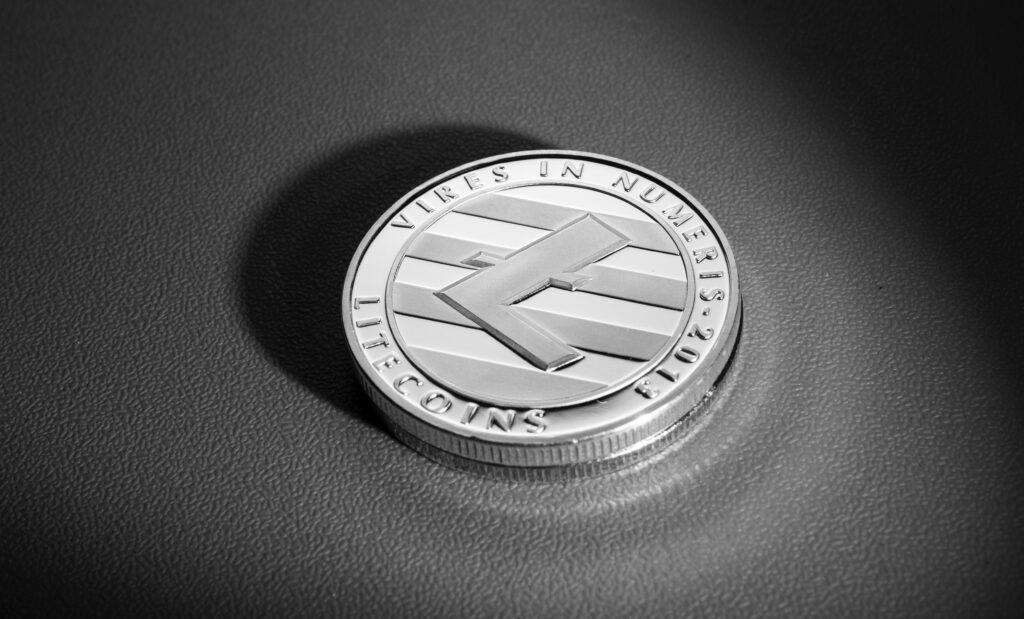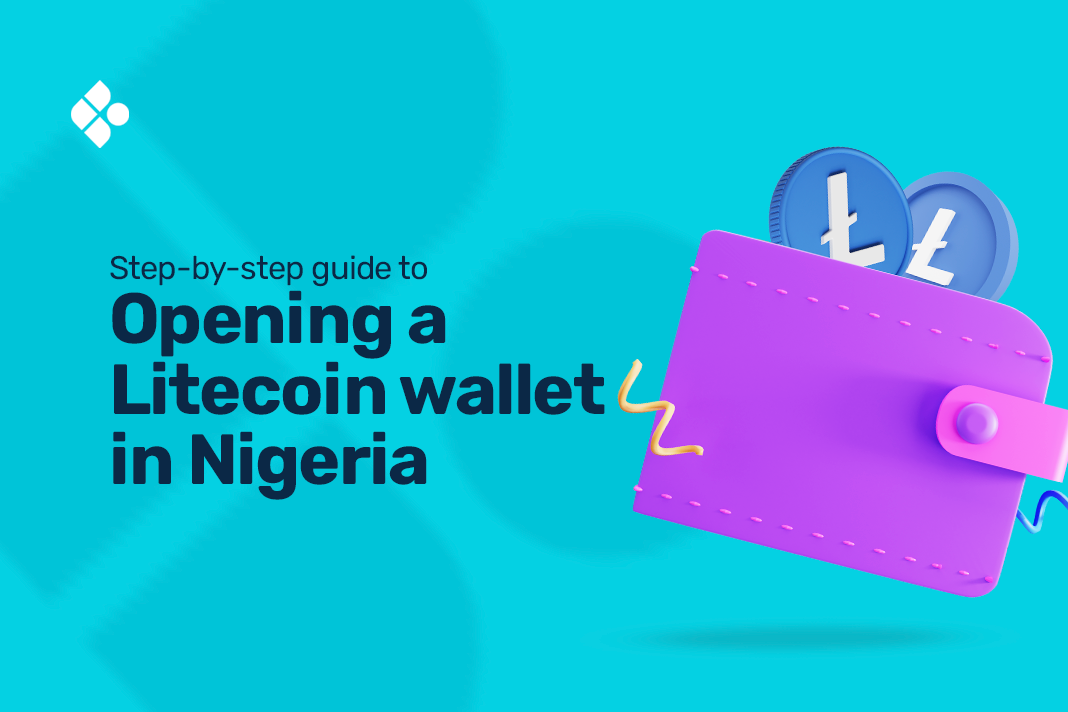So, you’re looking to expand your portfolio and decided that crypto is the right way to do this? You’re right!
You’ve made a smart decision, as crypto provides diversified investment options. There are many options to choose from, and since you’re interested in Litecoin, you’ll need a Litecoin wallet before anything else.
But before we talk about opening a Litecoin wallet, let’s take a deeper look at Litecoin.
What is Litecoin? A Brief Overview.
Litecoin is Bitcoin’s clone designed to fix the concern that Bitcoin was becoming central-controlled. Enterprise miners increasingly dominated the mining space, making it hard for smaller-scale miners to have level ground.
This motivated Charles Lee, a former Google engineer, to develop Litecoin in 2011. Much like Bitcoin, Litecoin is an open-source global payment system not controlled by a central entity.
Litecoin was built off Bitcoin’s blueprint, which is why it is called the silver to Bitcoin’s gold. However, Litecoin uses more advanced technology to tackle some challenges on the Bitcoin network. As a result, Litecoin mines its crypto 4x as fast as Bitcoin and processes more transactions quicker.

Many investors and market analysts are optimistic about a Litecoin investment. The consensus is that Litecoin is a combination of storage assets for long-term holding and works just as well for convenient daily transactions. Although Litecoin has excellent functionality, many investors prefer to hold it as an investment as it can build wealth over time.
We saw this play out in November 2022 when Litecoin was the month’s highlight, with a whopping 37% price increase. Ever since it has remained on a steady path. Some analysts are even predicting a great year for the coin, especially in August 2023, when Litecoin tokens will be halved.
With the uptrend of Litecoin, now could be an excellent time to get into the market (after doing your own research). To see how you can maximise your profits, let’s understand Litecoin wallets.
What Is A Litecoin Wallet?
A Litecoin wallet is where to store your private keys — the passwords that make your Litecoin accessible to you. Although digital wallets copy the functions of your physical wallet —there’s a difference. Your Litecoin is on the blockchain, but it’s reflected in your wallet. This is comparable to banknotes in a vault, but your bank applications reflect your balance. So, your private keys give you access to your coin on the blockchain.
Your Litecoin wallet lets you hold the reigns over your transactions; it allows you to send and receive Litecoin very quickly. You may have had a more challenging time doing this in the past because of the long string of numbers you have to type in before Litecoin transactions. However, with the advent of simplified wallets like Breet, you almost don’t have to do anything!
Different types of wallets serve different needs; let’s take a look at them below.
Types Of Litecoin Wallets
There are different types of Litecoin wallets available. We’ll explore them according to their uses.
-
Hot Wallet
These are connected to the internet. They are easy and convenient to use because of how accessible they are. This can also be a pitfall because it could be susceptible to online attacks. Hot wallets can usually be found on the web and in mobile applications. However, the risks associated with hot wallets can be mitigated using more robust private encryption.
It is also the best bet for beginners and traders, as most apps already have private keys encrypted on the app. The best practice with hot wallets is not to store large amounts of crypto but only transactional amounts.
-
Cold Wallet
You guessed it — cold wallets aren’t connected to the internet. They are external storage that is safe from online attacks. While this is not as convenient as hot wallets, they are best for Litecoin hodlers. Those who prefer to store large amounts of Litecoin over a while should consider using cold wallets. There are two other categories of cold wallets, they are:
- Paper wallets are downloaded and printed into paper and stored in a physical location. This wards off online hackers but is not a flawless storage system. Paper wallets are prone to physical damage. It is also impossible to send partial funds with this wallet type.
- Hardware wallets are external physical storage like a USB or Bluetooth device. They give some level of control to the owner and keep the crypto safe from malicious individuals. Hardware wallets usually don’t have batteries and are easily accessible by being connected to a computer.
Hardware wallets are more user-friendly than paper wallets but are not as easy and convenient as hot wallets.
What To Look Out For When Choosing A Litecoin Wallet
1. Security
This goes without saying. Any wallet you’re considering must be safe enough with obstacles in case your wallet falls into the wrong hands. Extra security checks must be implemented to prevent easy access to your wallet.
2. Review
What is the reputation of the wallet you’re considering? Public opinion has to be in favour of the wallet you’re considering. This serves as social proof, providing insight into other people’s experiences and what you may encounter when using the app.
3. User-friendly
In this age of ease and convenience, the user-friendly interface of an app should also inform your usage of the app. A complicated user interface puts you at risk of making avoidable mistakes due to a lack of clarity.
4. Portable
If you will be trading Litecoins regularly, the best thing to do is choose a wallet you can always carry with no hassle.
Breet: The Best Litecoin Wallet In Nigeria
The results are in, and it says that Breet is the best Litecoin wallet in Nigeria and Ghana. Breet is a crypto trading platform that allows you to sell your Litecoin at the best exchange rate and send the Naira or Cedis equivalent directly to your bank account.

Breet is highly secure, conveniently giving you access to your wallet through biometrics (facial recognition and fingerprint), passwords, transaction pins, and two-factor authentication. The Breet App and web app are extremely easy to use, and a successful transaction requires minimal effort from the user.
How To Open A Litecoin Wallet On Breet
Opening a Litecoin wallet is easy-breezy and free on Breet. You’re good to go if you have your smartphone (iPhone or Android) or laptop. Just follow these simple steps:
- Go to the play store or app store on your phone, search for “Breet”, download and install. Alternatively, you can visit the Breet web app.
- Create a Breet account for yourself by signing up.
- Your crypto wallets are automatically added to your Breet app.
You can look to this guide for help if you need help signing up on Breet.
How to Locate and Share Your Litecoin Wallet on Breet
So, now you have a Breet wallet, but you need a wallet address to receive or send your Litecoin. You know how you have a bank account but still need an account number to receive funds? Yeah, that’s how it works on Breet as well. Like everything on Breet, it’s very seamless. Here’s how to get your Litecoin wallet address:
- Log in to your Breet account.
- On the list of cryptocurrencies, select “Litecoin.”
- Automatically generate your wallet in less than a second by clicking “Generate wallet address.”
- Your wallet address is now available. You can copy to send to others or click “share” to send to your network on different apps.
- Alternatively, you can share your wallet address via a QR code. Just click “Show QR code” for the sender to scan easily.
Security Tips While Using A Litecoin Wallet On Breet
- Use Complicated Passwords
Use a long string of numbers, alphabets, and characters to secure your Breet account. Avoid using the same passwords you use on your other applications, so it’s not easy for hackers to guess.
- Activate 2-Factor Authentication
This is an extra layer of security on Breet that protects you. It is vital that you activate your 2-factor authentication for additional protection.
- Always Use Private Internet.
The temptation to use public WiFi may be great, but for the sake of the security of your Breet account, please don’t. This is because public WiFi may collect unsolicited data from your device, including sensitive data.
Frequently Asked Questions (FAQs)
Which Wallet Is Best In Nigeria?
Breet app is a round-the-clock crypto wallet in Nigeria to sell your crypto at the juiciest exchange rate. Breet offers fast and seamless transactions in a secure and easy-to-use app. With ease, security, and the best exchange rate, Breet is the best app to trade crypto.
How Can I Sell Litecoin in Nigeria?
You can easily sell your Litecoin using the Breet app and get Naira in your local bank account fast. Breet is a hassle-free trading app that offers a premium trading experience, every single time.
What Crypto Wallets Allow Withdrawal To Banks?
With the Breet app, withdrawing crypto into your local bank account has never been easier. Breet automatically shows you the Naira or Cedis equivalent of your crypto, and you can cash it into your bank account. To make it even faster, if you’ve activated “Automatic Settlement”, your funds move straight to your bank account as soon as it hits your Breet wallet without you lifting a finger!
What Is Required To Open A Crypto Wallet?
On Breet, all you have to do is sign up, and you automatically get your wallet. With Breet, you can trade crypto the easiest, fastest, and most secure way possible.
Bottom Line,
A Litecoin wallet is the most essential part of investing and trading Litecoin. You’ve come this far, so I’m convinced you can now open a Litecoin wallet in Nigeria and have a stress-free Litecoin investment journey.
Don’t forget to use Breet for all your Litecoin trading to maximise your investment. Say goodbye to all the horror stories of scammers, poor rates & horrible trading services, and hello to fast, seamless, and secure trading. Happy trading!

